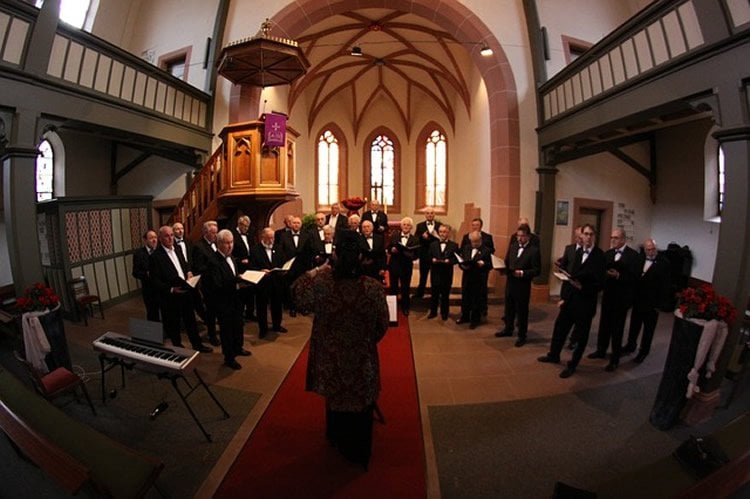Singing in a choir can improve the feelings of social isolation and low mood experienced by stroke survivors with aphasia (communication difficulties) according to new research from the University of the West of England (UWE Bristol) and the University of Auckland in New Zealand.
Reporting in the journal Disability and Rehabilitation, researchers found that people with stroke and Parkinson’s disease perceived participating in choral singing therapy as improving mood, language, breathing and voice problems, and helped them to self-manage some of the consequences of their condition, including social isolation, low mood and communication difficulties.
Now lead researcher, UWE Bristol’s Laura Fogg-Rogers is to launch a choir in Bristol this autumn.
The Bristol Neurological Choir, based at UWE Glenside Campus, is a new free singing and music group run by music therapists, speech language therapists and musicians from the Centre for Performing Arts at UWE Bristol for people with communication difficulties following a stroke. Singing experience is not needed and carers and families are welcome too.
Laura Fogg-Rogers (Science Communication Unit) explains, “People with aphasia can often still sing, even when they can’t speak very well. Aphasia causes language problems, but the areas which control speech in the brain are different to those which control singing. It is really quite miraculous watching someone who can’t speak burst into song when they possibly haven’t been able to communicate for months or years.”

Ian Holmes, Director of the Centre for Performing Arts, said, “We’re delighted to be involved with this wonderful project, to be able to give something back to the community in Bristol. It’s really uplifting to see the joy that people get from both the social and musical aspects of being involved in a choir and we’re looking forward to making the Bristol Neurological Choir a really supportive, relaxing and sociable experience for all our new members, their carers and families.”
Source: UWE Bristol
Image Source: The image is in the public domain
Original Research: Abstract for “Choral singing therapy following stroke or Parkinson’s disease: an exploration of participants’ experiences” by Laura Fogg-Rogers, Stephen Buetow, Alison Talmage, Clare M. McCann, Sylvia H. S. Leão, Lynette Tippett, Joan Leung, Kathryn M. McPherson & Suzanne C. Purdy in Disability and Rehabilitation. Published online August 11 2015 doi:10.3109/09638288.2015.1068875
Abstract
Choral singing therapy following stroke or Parkinson’s disease: an exploration of participants’ experiences
Purpose: People with stroke or Parkinson’s disease (PD) live with reduced mood, social participation and quality of life (QOL). Communication difficulties affect 90% of people with PD (dysarthria) and over 33% of people with stroke (aphasia). These consequences are disabling in many ways. However, as singing is typically still possible, its therapeutic use is of increasing interest. This article explores the experiences of and factors influencing participation in choral singing therapy (CST) by people with stroke or PD and their significant others. Method: Participants (eight people with stroke, six with PD) were recruited from a community music therapy choir running CST. Significant others (seven for stroke, two for PD) were also recruited. Supported communication methods were used as needed to undertake semi-structured interviews (total N = 23). Results: Thematic analysis indicated participants had many unmet needs associated with their condition, which motivated them to explore self-management options. CST participation was described as an enjoyable social activity, and participation was perceived as improving mood, language, breathing and voice. Conclusions: Choral singing was perceived by people with stroke and PD to help them self-manage some of the consequences of their condition, including social isolation, low mood and communication difficulties.
“Choral singing therapy following stroke or Parkinson’s disease: an exploration of participants’ experiences” by Laura Fogg-Rogers, Stephen Buetow, Alison Talmage, Clare M. McCann, Sylvia H. S. Leão, Lynette Tippett, Joan Leung, Kathryn M. McPherson & Suzanne C. Purdy in Disability and Rehabilitation. Published online August 11 2015 doi:10.3109/09638288.2015.1068875






